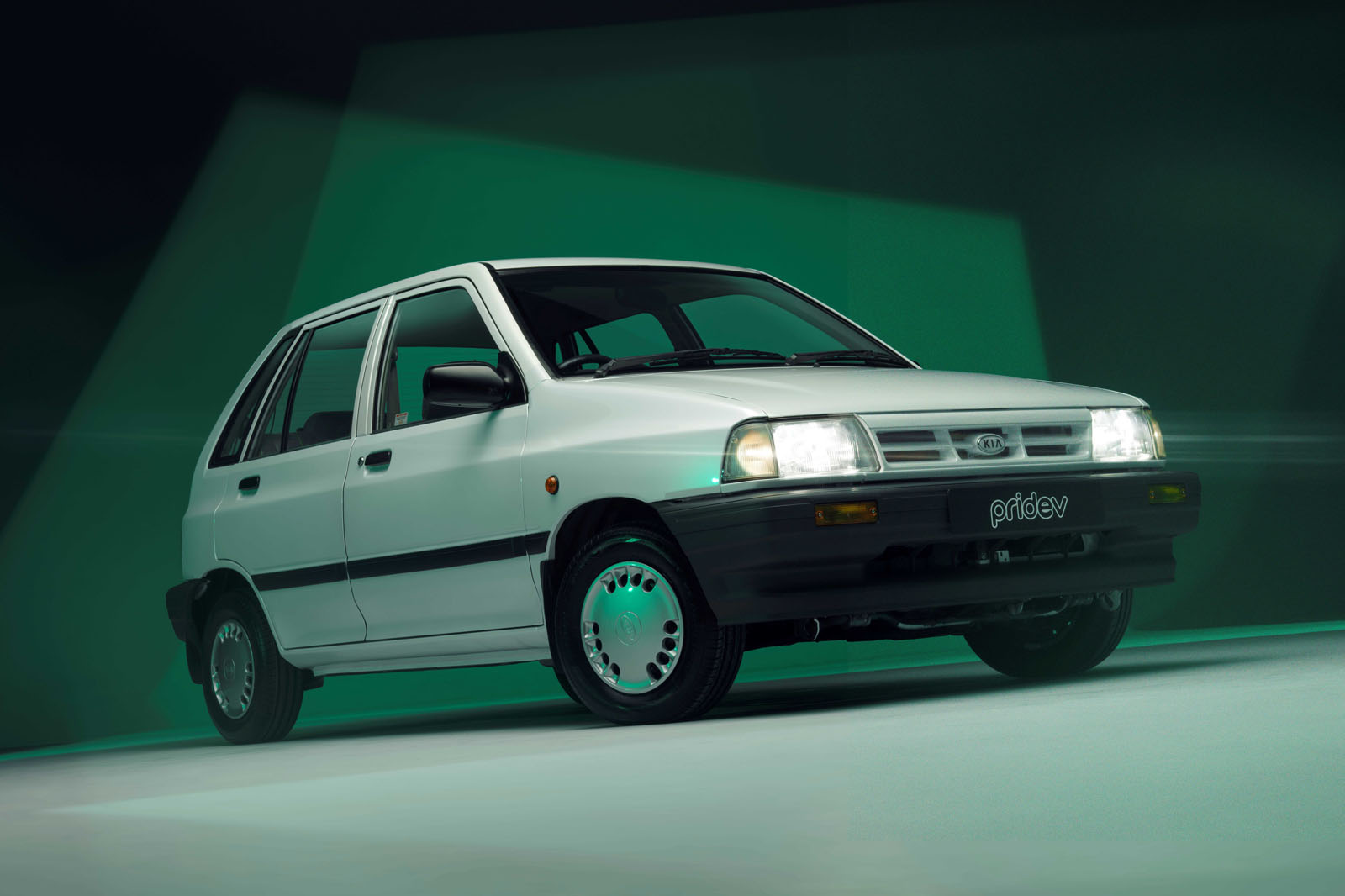Kia UK has unveiled an electric restomod of the first car it sold here, the Pride hatchback, with almost twice as much power as the original.
Based on a 1996 Pride LX from the company’s heritage fleet, it has been converted to electric power by Oxfordshire-based firm Electrogenic.
The 60bhp 1.3-litre petrol engine has been swapped for a 107bhp electric motor, which remains mated to the original five-speed manual gearbox “to ensure maximum driver engagement”.
Kia UK expects the Pride EV to dispatch the 0-62mph sprint in around 8.0sec and said it will independently verify the car’s acceleration and performance later this year.
The 37-litre fuel tank has been swapped for two 10kWh battery packs – one fitted under the bonnet and one under the boot floor – combining for a total 20kWh in capacity.
That yields a range of around 120 miles per charge in the car’s Eco driving mode, Kia said, although Sport mode naturally reduces this figure.
The Pride EV can be recharged at up to 3.3kW via a Type 2 connector fitted under the fuel filler door, taking around six hours to go from 1-100%.
Inside, it retains its original instrumentation, with the fuel level dial adapted to show the battery’s state of charge.
The conversion to electric power has meant that the Pride has put on an extra 20kg (going from 850kg to 870kg), but Kia UK said the gains in power make up for the extra heft.
Visually, the Pride EV is almost indistinguishable from the original Pride, wearing its original 12in steel wheels and plastic bumpers.
It has been resprayed from Kingfisher Blue to the White Pearl finish offered on the Kia EV3, EV6, EV9 and Niro EV and the lights at both ends have been uprated.
Inside, it’s trimmed in grey cloth with lime-green piping referencing the shade used on the flagship EV6 GT.
The Pride EV is intended as a celebration of Kia’s 80th birthday, the Korean company having been established as a bicycle component manufacturer in 1944.
It began building cars in 1974 and first exported one to the UK in 1991.

